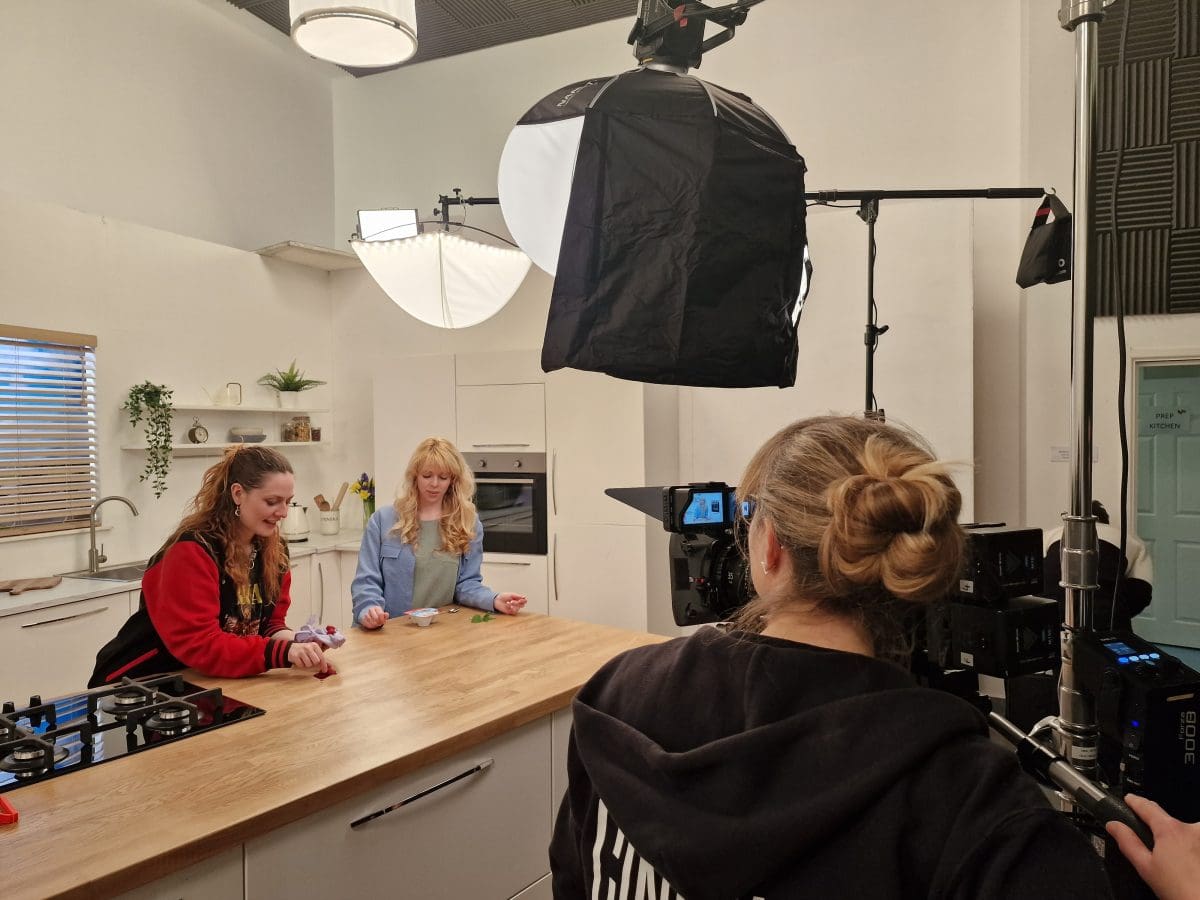As a Creative Director with ADHD, I understand firsthand the unique strengths and challenges that come with being a neurodivergent person in the workplace. But I also know that embracing neurodiversity can benefit both the individual and the business. I say this mindfully; describing our traits as a “superpower” often trivialises the difficulties we experienced. It’s not easy. Having a brain that is wired differently brings very real challenges.
That said, I truly believe that when our differences are appreciated, supported and celebrated, our uniqueness can be a hugely valuable asset both to ourselves and to our employers.
To that end, here are some tips for employers and neurodivergent employees who wish to make reasonable adjustments to their working practices, in order to make the most out of our uniqueness.

1. Embrace neurodiversity, don’t fight it!
Employers should recognize and adapt to the strengths of neurodivergent employees, because reaping the benefits of our unique strengths and traits will mean a more efficient, happier and more productive team, and the accommodations required are largely pretty minimal. Don’t view it as a challenge to overcome, but rather as a benefit to your organization. By embracing neurodiversity in your workforce, you can create a more inclusive and productive workplace. Together, we can create a more accepting and diverse workplace that benefits everyone.
What are the potential benefits?
Having a brain wired in a different way often means that neurodivergent employees have unique perspectives that can lead to creative problem-solving and innovative thinking. Us ADHD’ers are often excellent in a crisis, because our everyday hyper vigilance makes us calm under pretty intense stress; our base line tolerance for this is usually much higher. I find that it gives me the foresight to spot issues long before they crop up. At the same time, being highly spontaneous also means I’m very adaptive. Therefore, if something goes wrong unexpectedly, I am really good at problem solving on the fly.
On a good day, my neurodivergence manifests as a high level of attention to detail and a strong ability to hyperfocus, which can be incredibly valuable. I can work solidly on a single idea for 10 hours straight without coming up for air. Which is especially useful on a deadline!
What are the pitfalls?
It can be quite isolating and hard to live in a world that simply wasn’t made with us in mind. And if employers knew how hard it is for us to brute force ourselves into spaces that simply don’t fit, and all the sick days required to account for the physical and mental health issues that arise from us masking our differences, they may think differently about insisting on a cookie cutter approach to all staff. It is definitely a false economy!

2. Create a neuroinclusive work culture
To use a personal example, I can’t switch my hyper focus on and off like a light bulb, I have to be given the freedom and space to chase after the tasks that excite me the most. I take pride in being a reliable team player, so I will always finish everything on my list. I may just be working at 2 a.m. when it’s quiet and there are no distractions. Providing that it’s reasonable within deadlines, allowing me to prioritise tasks by how hyped I am to do them, essentially means I can finish them in half the time. So, for me, having flexibility and autonomy is crucial, and this requires trust from my employers who want to make the most of my gifts.
3. Create a neuro inclusive workspace
For example, I am very sensitive to over stimulating environments, so I find it extremely difficult to concentrate in a crowded office. I can hear someone else chatting beside me, the sound of the air conditioning, the footsteps in the corridor, and so on. I appreciate this is annoying for most people, but unlike my neurotypical colleagues, I am physically not able to tune out the distractions. When I hear everything, all at equal volume and intensity, it makes focus impossible. Allowing me to work from home on days when I have a lot of writing to do, or client meetings where I need to listen intently, has enabled me to be a lot more efficient and productive.
If this isn’t possible, providing tools such as noise cancelling headphones is a good solution. I also recommend Loop earbuds. Or using a calming, repetitive and familiar playlist which can drown out the background noise. Personally, I listen to Boards of Canada a lot when I need to concentrate – they are always the top of my Spotify most listened playlist every year for this reason!
Another way to keep me focused is to keep things varied – can we have a work meeting whilst walking in the park, does it have to be on a screen? Can we play a game as part of our ideas generation session? I love to facilitate, so I’m often called on to come up with sessions that involve moving around or getting away from the screens, which can also help productivity across the board.

4. Recognise that neurodiversity is a spectrum
There is no one “right” way of thinking, learning, and behaving. A lot of the time, neurodivergent people have challenges in fitting into societal norms of office culture; a one size fits all approach to productivity is a recipe for failure. For example, a lot of what I have described above relates specifically to ADHD, whereas people who identify as autistic, may find a lot of the accommodations that fit my needs are actually problematic for them. It’s crucial to understand that not all neurodivergence manifests in exactly this way. Although there are some similarities in the various conditions, we are all individuals, and our support needs are as unique and varied as the abilities and strengths that we have.
5. Provide clear communication
Neurodivergent individuals may struggle with certain types of communication, so it’s important to provide clear instructions and feedback. In my case, I find large volumes of text extremely hard to process. I find that I miss details in very long emails or documents. However, we all know that it isn’t always possible to avoid this.
One of the things I have done to support myself in this is to install a text to speech reader plug in on my browser, that will read the text aloud, and underscore the words as it’s being read out. This really helps me to focus in on the text and for it to sink in.
Another way I can help myself to digest text is to write out in a notebook, and translate it for myself into doodles, drawings, or whatever I need to get my head around it.
Finally, I like to talk through ideas and concepts with colleagues, so providing scheduling permits, I like to book in time to discuss projects or workload with others as this can often help me ensure I have digested the info correctly, or to work through any challenges I have.
6. Offer flexibility
Neurodivergent people may need more flexibility in our work schedule or environment in order to be at our most productive. For example, I need an employer to be more interested in the results I produce than the time I invest. Some days a simple task may take me several hours, whereas other days I can cram 40 hours of work into a single day.
It’s really damaging if an employer expects my high productivity available to me in a state of hyper-focus, as a precedent in the long term, because the flip side of hyper focus is burn out.
I can’t sprint a marathon, and it would be unreasonable to expect this. In the same way, I cannot hyper focus or be hyper vigilant for weeks at a time, and if I try to do so for long periods, I get overwhelmed and exhausted.
Therefore, having an employer who understands that some days I need to start later and work later, or take time back because I’ve done extra-long hours on other days, is a real bonus. For both of us! Because it means I have the freedom to sprint when I can, and the recover with less intensive tasks once the deadline is met.
7. Encourage self-advocacy
It’s important to create an environment where employees feel safe to advocate for ourselves, and feel supported to get the accommodations we need to be successful in our jobs. Ideally, you share the company goals and values, and everyone wants the same thing; a great team, hitting targets, making magnificent work, and having an enjoyable experience at work. So don’t be afraid to ask for what we need to ensure that we are working to the best of our ability. If you want to work in the middle of the night rather than standard office hours, providing that it does not prevent anyone else from doing their job, ask for that! If it produces better results, it’s the best way to ensure success for all parties.
Creating a culture of acceptance means that every individual is valued for their unique strengths and contributions, regardless of their neurological differences. This culture should be built on the understanding that everyone has something valuable to offer and that diversity is a strength, not a weakness. It involves recognizing and celebrating the strengths and talents of neurodivergent individuals and providing them with the support and accommodations they need to thrive. It also means promoting open communication, mutual respect, and collaboration among all team members. By fostering a culture of acceptance, you can create a more inclusive and supportive work environment that benefits everyone.
